“Wendling is the foremost flute player of his time”
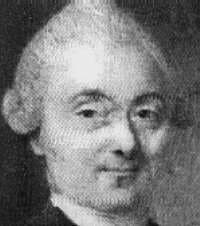
Johann Baptist Wendling
300 years ago, on 17 June 1723, the town of Rappoltsweiler, now Ribeauvillé, recorded the birth of Johann Baptist Wendling (1723-1797). His family originated from the Alsace region, and his father and grandfather imparted him with a strong musical tradition. Little is known of his early years, but Johann Baptist was to become one of the most celebrated flautists of his day. As a contemporary lexicographer writes, “He was universally treasured and renowned as one of the greatest virtuosos of this instrument. He made several tours and found extraordinary acclaim in all the great cities, and courts of kings and princes. He won great honor, universal glory, and the loudest applause.”
Johann Baptist Wendling: Flute Sonata in G Major
The German poet Christian Friedrich Daniel Schubart heard Wendling in Mannheim in 1773, and wrote, “Wendling is an excellent flautist who knows how to combine true principles with finished execution. His performance is clear and beautiful, and his tone equally full and incisive in the low and high registers. He is more proud of bringing out the beautiful and the pleasing than the difficult, rapid or rushed.”
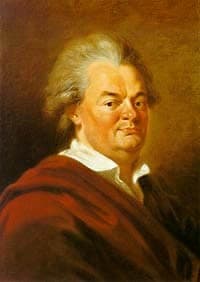
Christian Friedrich Daniel Schubart
And let’s not forget that the Mozart family heard him in a concert in 1763, with Leopold Mozart writing, “I had the pleasure to hear, besides good singers of both sexes, the admirable flauto traverse, Wendling.
Johann Baptist Wendling: Flute Concerto in G Major, Op. 4 “Allegro” (Martin Sandhoff, flute; Neue Hofkapelle Munchen; Christoph Hammer, cond.)
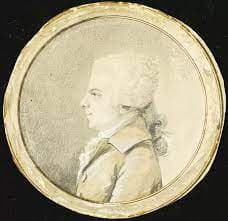
Wolfgang Amadeus Mozart, c. 1778
And Wolfgang Amadeus Mozart, who met the Wendling family on 8 November 1777 in Mannheim provided the following eyewitness account. “Today after lunch at about two o’clock I went with Cannabich to the flautist Wendling. There everyone was extremely polite. The daughter, who was once the elector’s mistress, plays the keyboard quite nicely. After that, I played myself. I was in such an excellent mood that I cannot describe it. I played nothing but from my head, and three duets with violin which I had never seen in my life, and whose author I had never even heard of. They were all so content that I had to kiss the women. With the daughter it was not hard for me, for she is no dog.”
Johann Baptist Wendling: Flute Concerto in G Major, Op. 4 “Adagio ma non troppo” (Martin Sandhoff, flute; Neue Hofkapelle Munchen; Christoph Hammer, cond.)
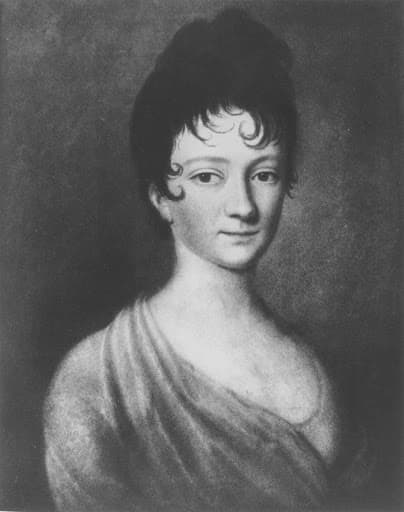
Elisabeth Augusta Wendling
The referenced daughter Elisabeth Augusta Wendling was the child of Johann Baptist Wendling and the singer Dorothea Spurni. They married on 9 January 1752 and performed together at the Concert Spirituel on 27 March. Spurni was the daughter of two Stuttgart court musicians, and after her Paris debut with her husband, was “appointed a singer at the Mannheim court on a salary of 800 florins.” Mozart certainly admired her singing and even composed a concert aria for her. In addition, Spurni created a number of roles in operas by Ignaz Holzbauer, and a contemporary writes, “Her singing surpasses everything I have ever heard… This is real singing – speaking from the heart and soul, each tone vividly expressing the most pure and heartfelt emotion.”
Johann Baptist Wendling: Flute Concerto in G Major, Op. 4 “Presto” (Martin Sandhoff, flute; Neue Hofkapelle Munchen; Christoph Hammer, cond.)
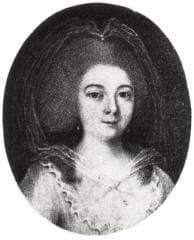
Dorothea Spurni
Early in his career, somewhere between 1745 and 1752, Wendling “was the flute teacher of Duke Christian IV of Deux-Ponts, with whom he travelled to various European centers.” And we do know that he performed to great acclaim for King Frederick the Great in Berlin in 1749. After his marriage, he took over the position of first flute at the Mannheim court orchestra, and he became the flute teacher to Elector Carl Theodor of the Palatinate. Carl Theodor was an enlightened ruler with a strong interest in philosophy, science and the Arts, and the court at Mannheim had flourished into one of the most important intellectual centers in Europe. Carl Theodor’s central interest, however, was music and he spared neither effort nor expense to engage the most exceptional musicians for his court orchestra.
Johann Baptist Wendling: Concertino for Flute, Violin, Viola and Cello in G Major, “Allegro” (Takashi Ogawa, flute; Hoff-music Mannheim)
As a scholar writes, “Wendling was one of the most highly paid members of the court orchestra, on an initial salary of 800 florins rising to 1000 florins in 1763.” To put that income into context, Wendling received twice the salary of his fellow musicians. Wendling frequently went on tour, regularly visiting Paris and becoming the flute teacher of the Duke of Guines. He also featured as a soloist in London and collaborated with J.C. Bach in “the presentation of Bach’s serenata Endimione on 6 April 1772. According to recent research, Wendling also went on a tour to The Hague (1775), Vienna (1776 and 1779), Italy, and Prague.
Johann Baptist Wendling: Flute Concerto in C Major, “Allegro” (Bernhard Krabatsch, flute; Salzburg Mozarteum Orchestra; Ivor Bolton, cond.)
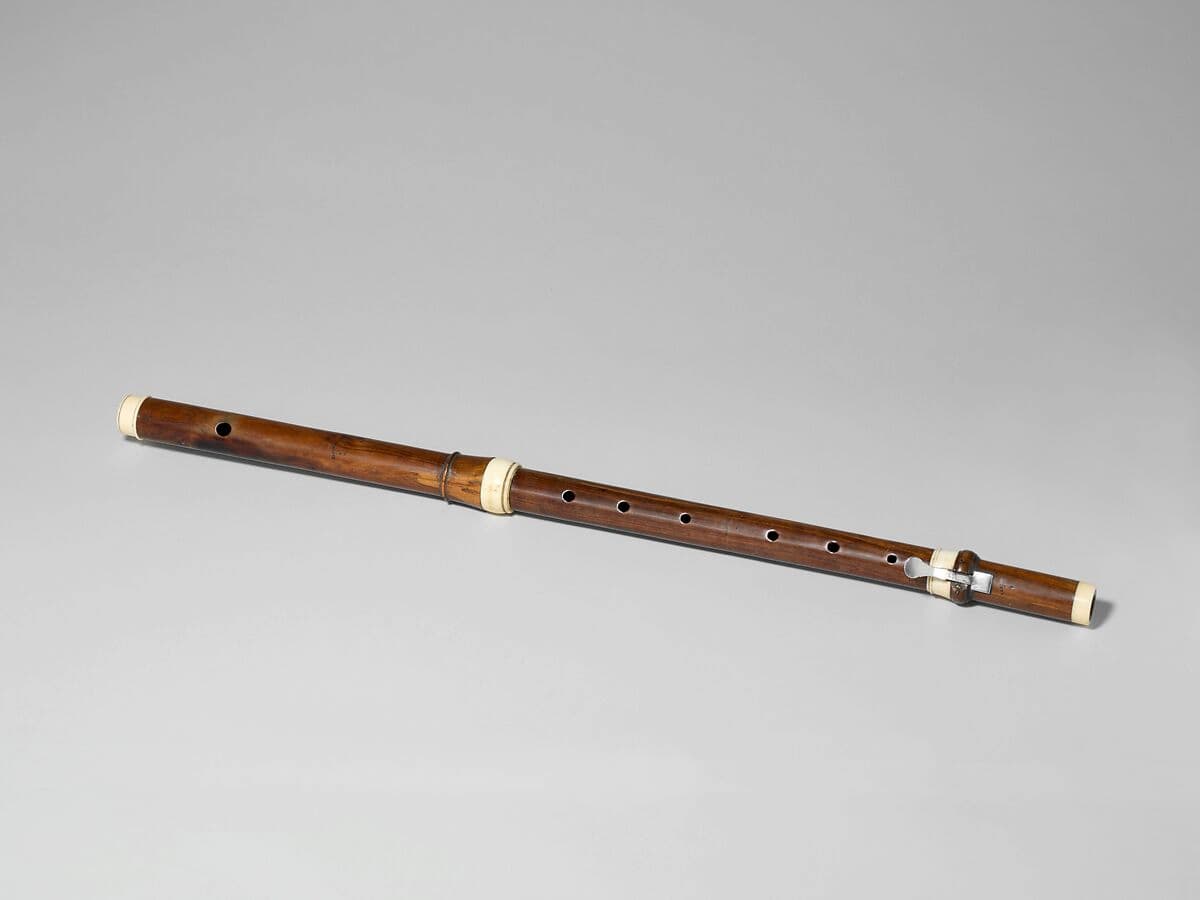
Transverse Flute, c. 1740
Wendling, like Mozart was a Freemason, and he founded a new Masonic lodge in Mannheim around Mozart’s visit in 1778. During Mozart’s time, the flute was still undergoing constant changes. Neither the sound nor the intonation of the instrument was particularly well suited for the virtuoso solo repertory. Not until Mozart experienced Wendling’s performances did he come to an understanding of the flute’s possibilities and its inherent potential. When the Mannheim orchestra disbanded in 1778, Wendling followed the court to Munich, and he made his final successful tour to Paris with his wife in 1780. Performing at the Concert Spirituel and at the Concert de la Reine, he even appeared before Queen Marie-Antoinette.
Johann Baptist Wendling: Flute Concerto in C Major, “Largo cantabile” (Bernhard Krabatsch, flute; Salzburg Mozarteum Orchestra; Ivor Bolton, cond.)
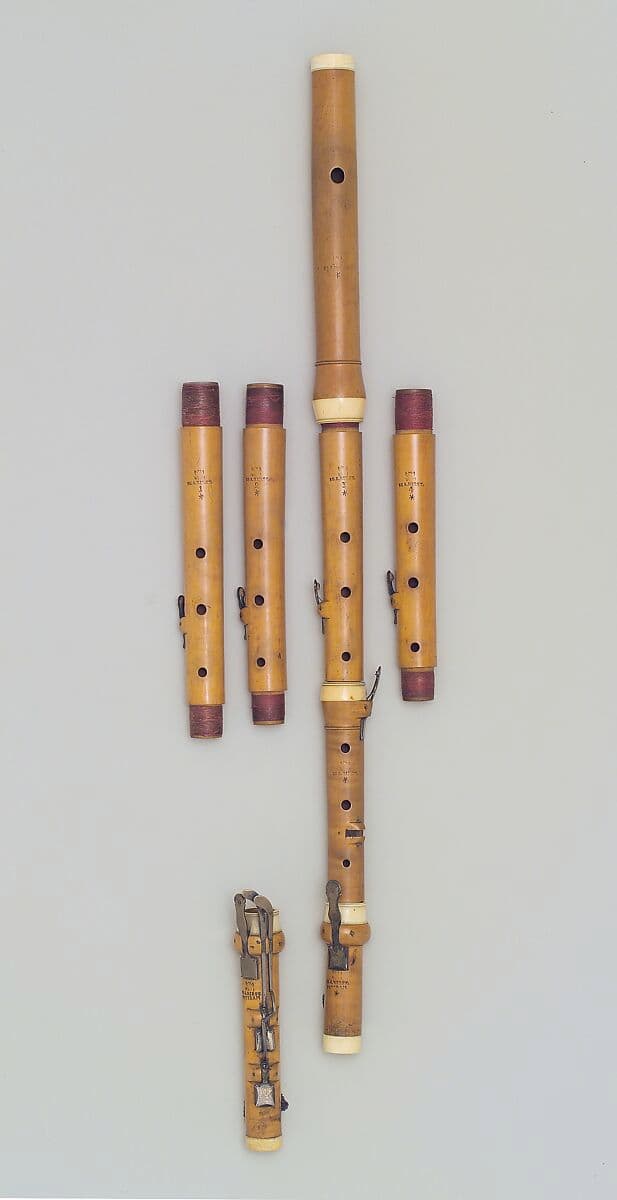
Transverse Flute with additional keys in the late 18th century
As a performer, Wendling was “praised especially for his accurate intonation and his beautiful singing tone throughout the range of his instrument.” As a contemporary writes, “combining true principles with polished execution, his performance is clear and beautiful, and his tone equally full and incisive in the low and high registers.” His influence as a performer, according to Emily Gunson, “can be found in the compositions of his Mannheim colleagues, and also in the works of J.C. Bach and Mozart. Wendling was also the inspiration for flute obbligatos in arias by Holzbauer (Günther von Schwarzburg), J.C. Bach (Endimione, Amor vincitore, Lucio Silla), and Mozart (Idomeneo K366).
Johann Baptist Wendling: Flute Concerto in C Major, “Allegro assai” (Bernhard Krabatsch, flute; Salzburg Mozarteum Orchestra; Ivor Bolton, cond.)
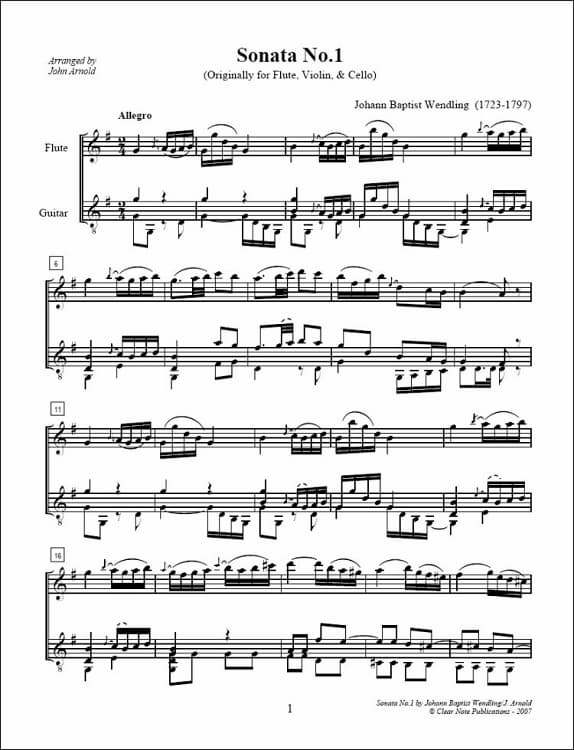
Johann Baptist Wendling’s Sonata No. 1
In addition to being one of the most celebrated performers of his time, Wendling was also a talented composer who left behind a significant body of flute music. His flute concertos and chamber music for flute were widely performed in Mannheim, Berlin, and Paris. His most famous compositions, a set of six flute quartets, however, appear to have been misattributed to him. Regardless, as Gunson writes, “the published works of the 1760s pioneered a new style of idiomatic flute writing, extending its virtuosity and expressive capabilities, with brilliant cascading arpeggios, dramatic wide leaps, dynamic contrasts, chromaticism, and use of the high register.” He subsequently combined this concertante style by “idiomatic string figuration in the style of the mature Mannheim school.”
His contemporary Schubart described Wendling’s compositions as “extremely sound and perfectly suited to the nature of his instrument.” And while a good number of his works were printed in France, England, Holland, and Germany, comparatively few have been recorded. As we celebrate the 300th birthday of Johann Baptist Wendling, a complete set of recordings would certainly make a fitting birthday present.
For more of the best in classical music, sign up for our E-Newsletter



